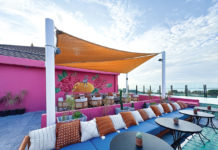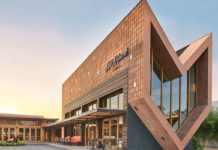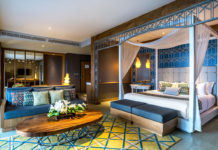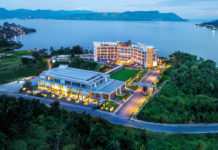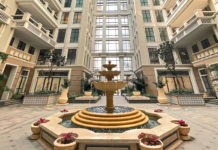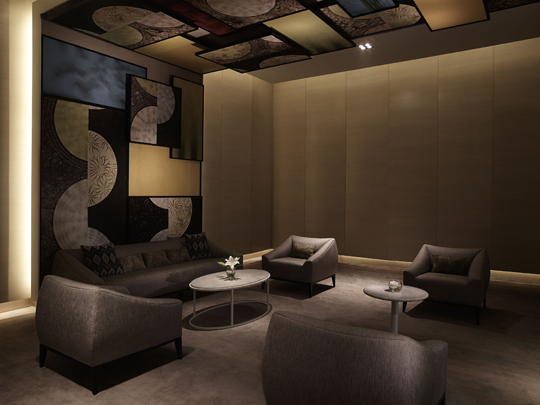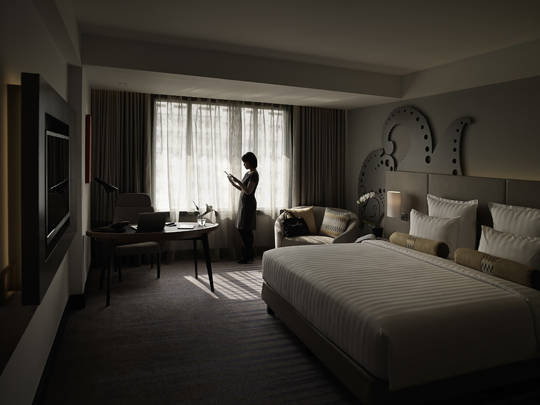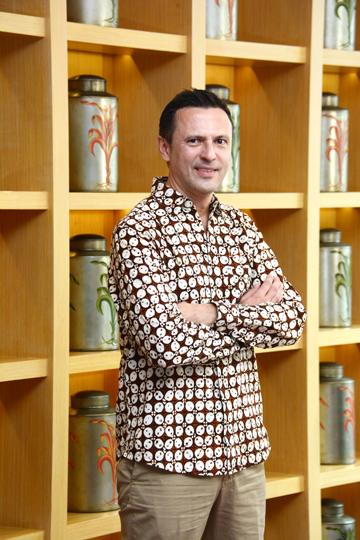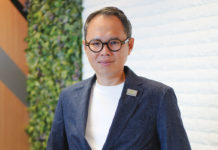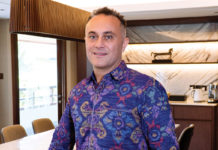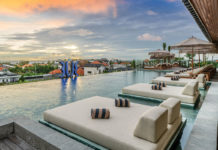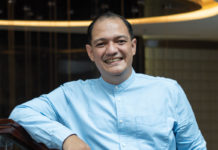Q: The first flagship hotel you managed was Sofitel Vienna. Can you tell us how you came to be in that position?
A: Before that, the first hotel I opened was a Mercure in a secondary city in Austria, which I opened and ran as general manager for around five years. In 2004 I switched to Sofitel in Vienna.
Q: Even before that, can you share with us what made you decide to jump into the industry and how you actually fell in love with hospitality?
A: I studied hospitality management in the University of Economics, and even during this time I was already working part-time in hotels – in the weekend, holidays, and in the evenings – mostly in the finance department, account receivables, also night shifts and audits, front office. I basically fell in love with this industry because I was proud of what I was doing. At first it was a small hotel with a very close-knit team led by a really great boss. I had the chance to really learn about many important details and it made my passion for the job grew.
In 1994 I joined AccorHotels and have been with the group ever since, and it has been 22 years now.
Q: So it looks like you went and experienced many different fundamental departments early on. How important is this for the development of your career?
A: Very important. The fundamentals are very important, and also, my first hotel opening was also very important, because it allowed me to put my heart into the hotel from the start and so I knew everything from the ground up. I knew the layout of the kitchen, I basically hired everybody, and I even got to decide every small detail in the rooms. For example, just before we opened, I personally hung paintings in every room one by one. I wanted to do it myself because I preferred a specific height so. I did this in all 101 rooms. I came to understand every single detail of the hotel on a personal level, and this allowed me to perform my role as general manager effectively.
Q: When you relocated from Europe to Asia, what difference did you notice immediately in terms of work in the industry?
A: First of all, the scale of expectations for a general manager is very different. In Europe, you are managing standards and quality level. You are more involved in everything. At Sofitel Vienna, I had around 80 staff, but when I moved to Novotel Bogor this number quadrupled, and then here in Pullman Thamrin we have around 600.
Here you have different possibilities of what you can do. You are more dependent on the network. The hotel almost runs itself, with the opportunity to offer a much higher level of service. Even in an upscale hotel in Europe nowadays, there’s nobody opening the door or hailing a taxi for you anymore – even in Singapore this is getting rarer. But in Indonesia and many parts of Asia, this is what people look for: the service level and attention you get as a guest.
Q: You’ve been in Indonesia for around six years now. How has the high-end hospitality industry evolved between then and now?
A: One of the reasons I moved to Asia was because this is where everything is happening. Not only in the hotel industry, but everywhere, people are trying new things, inventing new things. For example, in keeping with this, we have our first Supper Club series starting in early May. This will be the first Supper Club series in Jakarta! We’re also reinventing our buffet and will have new events, not because it wasn’t good enough but because we have to keep up with the trends.
Q: You’ve carried the identity of AccorHotels throughout Europe and Asia, currently for the Pullman brand. Can you tell us what this arrangement entails and how the brand maintains its high standard?
A: One main difference is that many hotels in Europe are owned by AccorHotels. In Asia, most of the associated hotels are either under management or franchised. The contract lets AccorHotels manage the hotel under the Pullman brand for the local owner. To ensure consistent high-quality service is maintained, we have an annual brand audit where a mystery guest will visit and crosscheck over 500 items of literally everything about the hotel – from the flag pole outside to how long room service arrives with your food.
Q: Very interesting. When was the last audit and how did the hotel do, if you don’t mind my asking?
A: The last review was in August, and it went extremely well. We exceeded our target and got the best results in the region among the brand’s entire portfolio of properties. We are very pleased as this proves that we have what it takes to be one of the flagship hotels of Pullman for the brand.
Q: With that in mind, what are some of the key features that Pullman Thamrin offers to give it a sort of a competitive edge in the Jakarta market?
A: Location is definitely the one advantage we capitalize on most, but since we are not alone in the market, we do not sit back and be content with having a good location. Every day we ensure that this advantage stays an advantage. If you look at any respectable online reviewers, obviously you will see guests emphasizing our great location, but they don’t stop there. They also compliment our great breakfast, our new gym, great swimming pool, fast internet, and so on. All these factors coming together offer an integrated hospitality solution that our guests keep coming back to.
We are blending business and leisure. That’s what our brand is about. We call it bleisure. This is even embedded in our logo: one side is business and one side is leisure.
Q: Coming back to yourself, would you kindly share some of the most challenging and rewarding aspects of your job so far?
A: This is a very interesting question. I would say the most rewarding thing is when I see the team recognized. Occasionally a happy guest leaves a review online and mentions the name of our staff, and this feels great for me personally. Another rewarding aspect would be empowering our employees to improve themselves. We have employee of the month and employee of the year awards, and I can proudly say that our employee of the year was also awarded best employee of the year for AccorHotels Indonesia, Singapore, Malaysia. This means that this particular employee was the best employee in 2015 for the region, which has around 100 hotels. We groomed her, we promoted her, and I am personally involved in the presentation she will be giving.
And now we’re sending her to the selection of Jakarta Hotel Association for employee of the year award. This kind of thing is extremely satisfying to me personally.
In terms of challenges, the market is not easy. Staying ahead requires constant monitoring of competitors within the market. This is very important because we want to be ahead, the owner wants us to be ahead, and AccorHotels expects us to be ahead as well. I would say this is our drive as well as our challenge. We have been doing very well so far and we’d like to keep it that way.
Q: Would you like to share any advice for up-and-coming hoteliers trying to make it in the high-end hospitality industry?
A: I can only say that you have to do it with passion. Otherwise, you will be soulless. You can’t expect a normal Monday-to-Friday job. Expect, especially in the first year, very demanding hours. If a guest requests something on a Sunday evening, you have to react there and then. You cannot wait until Monday. You also have to get your family to understand this, because it is not a 9 to 5 job. Besides that, of course you need basic knowledge and proper education. You cannot become a general manager using only your experience alone. You will come to your limits that way. Also, it is a good asset when you know as many departments as possible early on.
Q: How do you like to spend your leisure time when you’re off work?
A: In the six years I’ve been in Indonesia I’ve become a very avid diver. I have dived in many gorgeous places such as Bunaken, Pulau Weh, Raja Ampat, and of course the must-dive spots like Bali, the Gilis, Komodo Island, and Nusa Lembongan, among other places.
Q: In your opinion, how important is it to work with the right media in pursuing better exposure and market awareness for your hotel?
A: It is very important to pick the right media as technology progresses and printing publications are being gradually replaced by electronic media. Having said that, in my experience a lot of people still value printed publications. The first thing most passengers as they take their seat on a plane is to grab printed reading materials and start flipping through the pages. This is just one of the reasons I think it is still crucial to work with outstanding printed publications.


